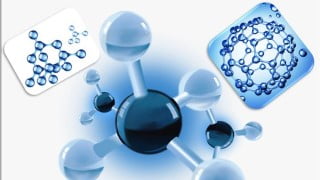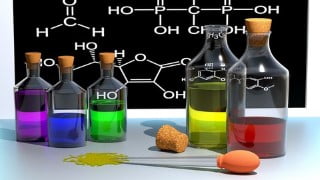Chemistry- Carbon and its compounds (alkane/alkene/alkyne)
Learn about carbon and its compounds in this comprehensive chemistry course. Covering topics such as atomic structure, covalent bonding, functional groups, and chemical reactions, this course provides a conceptual understanding of carbon compounds. With practical lab projects and quizzes, you’ll gain hands-on experience and clear any doubts. Suitable for beginners, intermediate learners, and those preparing for board exams or competitive exams like NEET and IIT. Enroll now to enhance your knowledge of carbon and its impact on our daily lives.
What you’ll learn
- o Introduction of carbon (abundance, availability, % on earth, different forms)
- o Atomic structure of carbon (electronic configuration of carbon)
- o Bonding in carbon – Reason behind covalent bonding
- o Covalent bonding and its types
- o Properties of molecules having covalent bonding
- o Versatile nature of carbon – (1) Catenation (2) Tetra-valency (3) Allotropy (4) Isomerism
- o Introduction of carbon compounds (single bond, double bond, and triple bonded compounds)
- o Saturated carbon compounds (straight chain, branched, cyclic) and Unsaturated carbon compounds
- o Friendly nature of carbon – Hydrocarbons and heteroatoms
- o Functional groups – Introduction of functional group , properties and kinds of functional groups
- o Homologous series – What is homologous series? , Characteristics of homologous series,
- o General formula in homologous series (for alkane/alkene/alkyne)
- o Nomenclature of carbon compounds
- o What is IUPAC system (includes prefix, word root and suffix)
- o Steps for writing IUPAC name for carbon compounds
- o Chemical Properties of carbon – (1) Combustion (2) Oxidation (3) Addition reaction (4) substitution reaction
- o Ethanol – Introduction of ethanol (structure, formula), Physical properties of ethanol
- o Chemical reactions with ethanol (reaction with sodium and dehydration reaction)
- o Alcohol as fuel
- o Denatured alcohol
- o Uses of ethanol
- o How does alcohol affect human being?
- o Ethanoic acid
- o Introduction of ethanol (structure, formula), Physical properties of ethanol
- o Chemical reactions with ethanoic acid (esterification reaction, reaction with base, reaction with carbonate and hydrogen carbonate)
- o Uses of ethanoic acid
- o Soaps and detergent – Introduction (structure and formula) , Function (cleaning action of soap)
- o Emulsion formation (what is emulsion)
- o Scum
Show moreShow less
This Chemistry Course on Carbon and its compounds is an intermediary class course designed from the perspective of education & learning. This course covers the general syllabus related to the topic Carbon and its compounds.
This course provides general knowledge & conceptual understanding in basic fundamentals & concepts of Carbon and its compounds. This also makes us learn about some important Carbon compounds & their impact in our daily life.
Further it provide concept in covalent bonding and their properties & versatile nature of carbon compounds.
It helps to understand the Nomenclature of carbon compounds & different types of chemical reactions in carbon compounds like combustion, oxidation, addition and substitution reaction as well.
It also helps to get information about the Functional groups, Homologous series and saturated & unsaturated hydrocarbons.
It helps in provide knowledge about Soaps & Detergents, give understanding about their formation, uses and difference between of them.
It helps in provide knowledge about scum formation and emulsions also.
It also includes Quiz with each section of course for better understanding and clear all doubts related to topic.
Here , you also get various practical lab projects, activities & experiments belongs to different sections of this course to encourage practical learning and familiarizes you with tools and equipment that you will be required to use..
Topics included in this course are:
· Introduction to carbon
o introduction (abundance, availability, % on earth, different forms)
o Atomic structure of carbon (electronic configuration of carbon)
· Bonding in carbon
o Reason behind covalent bonding
o Covalent bonding and its types
o Properties of molecules having covalent bonding
· Versatile nature of carbon
o Catenation
o Tetra-valency
o Allotropy
o Isomerism
· carbon compounds
o Introduction of carbon compounds (single bond, double bond, and triple bonded compounds)
o Saturated carbon compounds (straight chain, branched, cyclic)
o Unsaturated carbon compounds
· Friendly nature of carbon
o Hydrocarbons and heteroatoms
· Functional groups
o What are functional group
o Properties of functional group
o Kinds of functional groups
· Homologous series
o What is homologous series?
o Characteristics of homologous series
o General formula in homologous series (for alkane/alkene/alkyne)
· Nomenclature of carbon compounds
o What is IUPAC system (includes prefix, word root and suffix)
o Steps for writing IUPAC name for carbon compounds
· Chemical Properties of carbon
o Combustion
o Oxidation
o Addition reaction
o substitution reaction
· Some important carbon compounds
· Ethanol
o Introduction of ethanol (structure, formula)
o Physical properties of ethanol
o Chemical reactions with ethanol (reaction with sodium and dehydration)
o Alcohol as fuel
o Denatured alcohol
o Uses of ethanol
o How does alcohol affect human being?
· Ethanoic acid
o Introduction of ethanol (structure, formula)
o Physical properties of ethanol
o Chemical reactions with ethanoic acid (esterification reaction, reaction with base, reaction with carbonate and hydrogen carbonate)
o Uses of ethanoic acid
· Soaps and detergent
o Introduction (structure and formula)
o Function (cleaning action of soap)
· Emulsion formation (what is emulsion)
· Scum
· Terminologies
o Organic compounds
This course can be enrolled for:
Beginner & Intermediate Learning
Board exam preparation
Competitive exam (like NEET, IIT) preparation
National & International Olympiads
Preparing international levels A-level, A2-level, AQA, OCR, GCSE
Any candidate interested in learning (no prerequisite knowledge required)
Who this course is for:
- Any Candidate Interested in Science
- Beginner & Intermediate for organic chemistry
- Any Candidate Interested in carbon and its compounds
- Board Exam & Competitive Exam (like NEET, IIT) Preparation
- National & International Olympiads Preparation
- Preparing international levels A-level, A2-level, AQA, OCR, GCSE
User Reviews
Be the first to review “Chemistry- Carbon and its compounds (alkane/alkene/alkyne)”
You must be logged in to post a review.







There are no reviews yet.